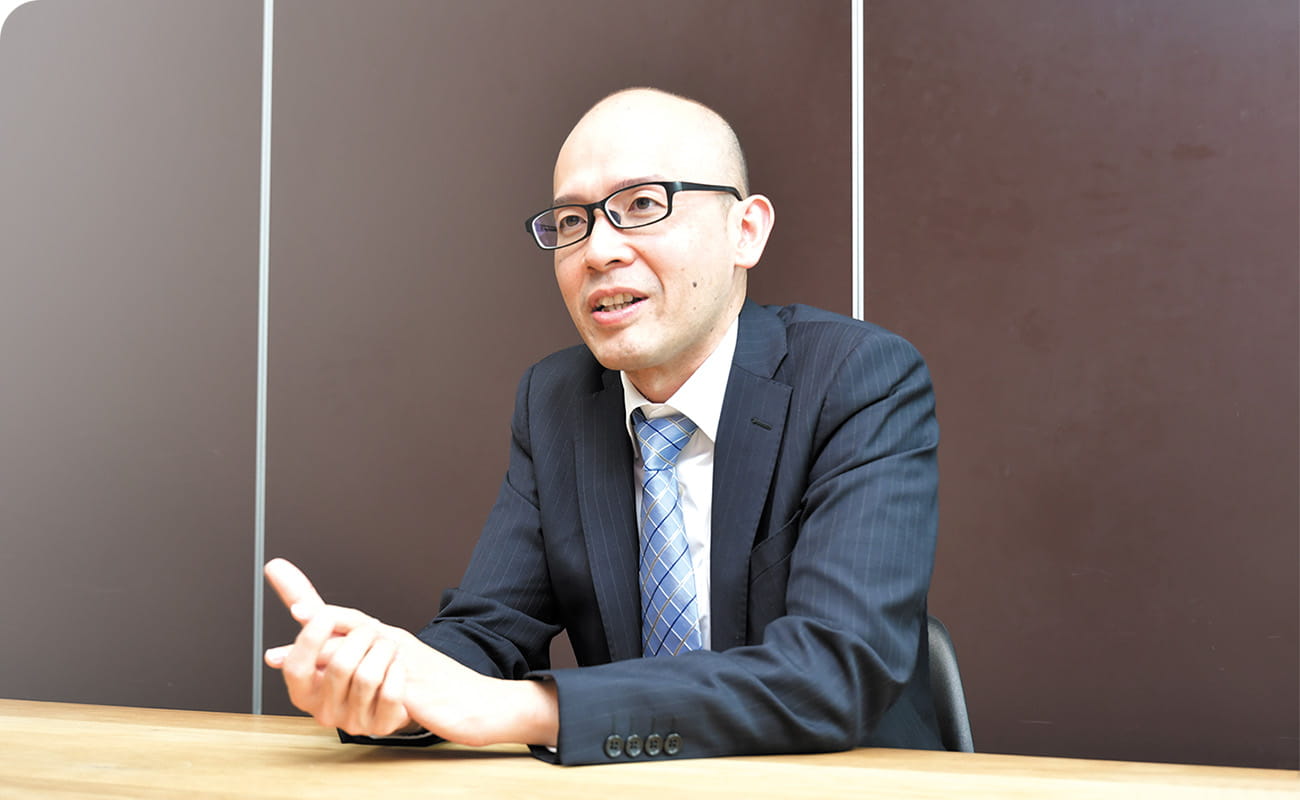

President
Kohei Yatsubayashi

What inspired your career in environmental work, starting with the Ministry of the Environment?
I’ve always loved nature. My childhood fascination with TV programs by Mitsuaki Mutsugoro and NHK’s “Living Planet Diary” sparked my interest. Growing up as a city boy in the urban landscape of Yokohama where this is limited interaction with the envirronment increased my curiosity, which deepened my connection to nature.
What motivated you to join the Ministry of the Environment?
I wanted to pursue a career aligned with my passion. Reflecting on my interests led me to nature, prompting me to apply for a role as a ranger in Japan’s national parks.
How long were you with the Ministry of the Environment?
For five years. I worked on-site at national parks and in the ministry’s Global Environment Bureau, where I was involved in developing Japan’s carbon credit system.
During this time, I realized the system’s potential for improving regional development, combating global warming, and helping companies achieve their goals. However, I also recognized the challenges of fostering widespread societal awareness and creating large-scale impact at the national level. These challenges sparked my desire to work more directly on impactful environmental initiatives at the community level.
So, that’s when you decided to transition to the Shimokawa Town Office in Hokkaido, correct?
Yes, that’s right. At the time, Shimokawa Town was pioneering efforts to establish a localized carbon credit system with its own framework. They were quick to adopt emerging information, even while national-level systems were still in development, and were actively sharing these initiatives at the municipal level. I found their forward-thinking approach both inspiring and fascinating, which led me to make the decision to join them. I spent about eight years living in Shimokawa, working on projects such as community revitalization through biomass utilization and model initiatives related to the SDGs.
After that you founded a company
While my work in Shimokawa brought significant local improvements, scaling these initiatives beyond one municipality was challenging. This led me to establish an organization focused on supporting renewable energy projects across regions. As my efforts expanded to include corporate support, I was introduced to Blue Dot Green, where I now continue my work.

What do you think are Blue Dot Green’s strengths and unique qualities?
Our strength lies in our ability to provide consulting services that are informed by a comprehensive understanding of both domestic and international policies—a perspective I bring from my experience working with the Ministry of the Environment. We offer end-to-end support, from calculating corporate greenhouse gas emissions to disclosures under various frameworks and even carbon offset initiatives.
Our greatest strength, however, is our extensive track record in supporting CDP (Carbon Disclosure Project) responses. In the realm of information disclosure, investors focus on specific key points. Our expertise in CDP response strategies, honed over years, provides a significant advantage for our clients.
What policies or principles guide your work?
My core principle is ‘Never be arrogant,’ which translates to maintaining humility. Confidence and arrogance are not the same; humility fosters growth and earns trust. Our mission is to support our clients in enhancing their corporate value, and we do so with humility and dedication.
Another key principle is passion. Without transforming corporate structures or shifting products and services toward decarbonization, we cannot mitigate climate change or remain competitive on a global scale. Corporate transformation is never easy, but we must continuously inspire and drive change. My vision is to create a company where every employee embodies this passion for making a difference.
Have you observed a shift in corporate attitudes toward environmental issues?
While there has been gradual progress, many companies still find these challenges daunting. Domestic literacy regarding climate change and sustainability remains low. Some executives lack an understanding of how their business impacts the environment or, conversely, how climate change impacts their business. Overcoming these barriers requires consistent communication. We must repeatedly convey that addressing climate change is directly linked to business success and ensure this perspective permeates all levels of the organization.
How does Japan compare to other countries in this regard?
Japan still lags behind. In many countries, particularly in Europe, consumer awareness is much higher. For example, CO2 emissions data are often printed on receipts, and boycotts are common. In Japan, consumer demand remains weak, which in turn slows corporate action. To drive change, we must first transform individual consumer awareness.
What are your future business goals and vision?
Our primary mission is to enhance the quality of information disclosure for Japanese companies, enabling them to attract better investments for their climate change initiatives. This serves as the starting point for driving technological innovation, transforming services, and transitioning toward more sustainable practices. We hope that growing companies will also leverage our expertise to achieve these goals.
In supporting information disclosure, we believe it is essential to advance quantitative evaluations of factors such as the future impacts of climate change and the greenhouse gas reduction potential of products and services. What has often been assessed qualitatively must now be increasingly quantified. This includes not only biodiversity metrics but also the quantitative evaluation of human capital and other aspects of sustainability. While our core business remains environmental management consulting, we aim to address broader needs and meet expectations on a wider scale.

Here, you will find details about our location, contact information, establishment, capital, shareholder composition, and number of employees.

We, Blue Dot Green, are committed to promoting corporate environmental management and contributing to the earth's carbon neutrality, guided by our philosophy: “Transforming the business structures of companies around the world to connect the blue and green of the Earth to the future.